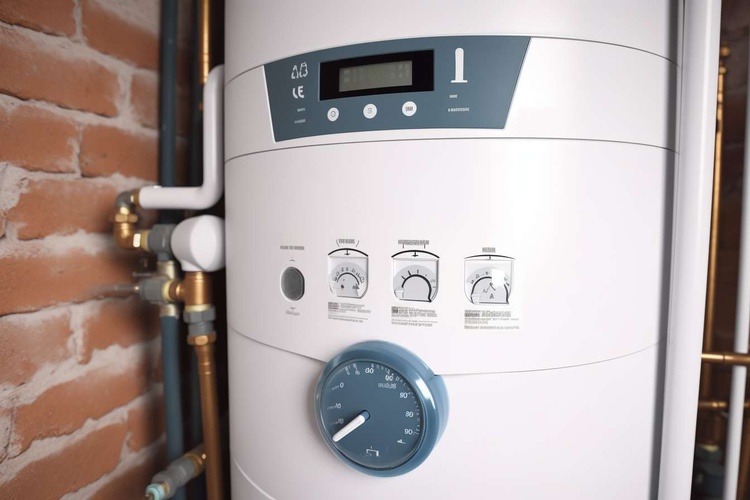Learn How Reliable Heating Systems Can Keep Your Home Comfortable Year-Round
Staying warm shouldn’t be a seasonal struggle. A reliable heating system can make your home comfortable all year. Learn what systems work best for your space and budget. Explore features that matter and how to plan your next upgrade. Comfort starts with the right setup.

What are the most common types of heating systems?
When it comes to heating your home, there are several options to choose from. The most prevalent heating systems include:
-
Forced-air systems: These use a furnace to heat air, which is then distributed throughout your home via ductwork and vents.
-
Radiant heating: This method involves heating floors, walls, or panels that radiate warmth into the room.
-
Boiler systems: Boilers heat water or steam, which is then circulated through radiators or underfloor pipes.
-
Heat pumps: These versatile systems can both heat and cool your home by transferring heat from the outside air or ground.
-
Electric resistance heating: This includes baseboard heaters and electric furnaces, which convert electricity directly into heat.
Each system has its own advantages and is suited to different types of homes and climates.
How do I choose the right heating system for my home?
Selecting the ideal heating system for your home depends on several factors:
-
Climate: Consider the average temperatures and weather patterns in your area.
-
Home size and layout: The square footage and design of your home will influence the type and size of system needed.
-
Energy efficiency: Look for systems with high energy ratings to reduce long-term costs.
-
Fuel availability: Check which fuel types are readily available and cost-effective in your region.
-
Installation costs: Factor in both the initial investment and long-term operating costs.
-
Personal preferences: Consider aspects like air quality, noise levels, and temperature consistency.
Consulting with a professional HVAC technician can help you make an informed decision based on your specific needs and circumstances.
What features should I look for in a reliable heating system?
A dependable heating system should offer more than just warmth. Key features to consider include:
-
Energy efficiency: Look for systems with high AFUE (Annual Fuel Utilization Efficiency) ratings for furnaces or SEER (Seasonal Energy Efficiency Ratio) ratings for heat pumps.
-
Zoning capabilities: This allows you to heat different areas of your home independently, saving energy and improving comfort.
-
Smart thermostat compatibility: Programmable and WiFi-enabled thermostats can optimize your system’s performance and save energy.
-
Variable-speed motors: These adjust output based on heating needs, improving efficiency and comfort.
-
Air filtration: Some systems include advanced air purification features, enhancing indoor air quality.
-
Quiet operation: Modern systems are designed to run more quietly, minimizing disruption to your daily life.
How can I maintain my heating system for optimal performance?
Regular maintenance is crucial for keeping your heating system running efficiently and extending its lifespan. Here are some tips:
-
Schedule annual professional inspections and tune-ups before the heating season begins.
-
Replace or clean air filters monthly during heavy use periods.
-
Keep vents and radiators clear of obstructions to ensure proper airflow.
-
Check and clean ductwork periodically to improve air quality and system efficiency.
-
Monitor your system’s performance and address any unusual noises or temperature inconsistencies promptly.
-
Consider investing in a maintenance plan with a reputable HVAC company for regular care and priority service.
What are some energy-saving tips for heating your home?
In the United Kingdom, where energy costs can be significant, implementing energy-saving strategies is essential. Here are some unique tips to help you stay warm while keeping costs down:
-
Use draft excluders: These simple devices can significantly reduce heat loss through gaps under doors.
-
Install thermal curtains: Heavy curtains can provide an extra layer of insulation, especially on older windows.
-
Utilize a chimney balloon: If you have an unused fireplace, a chimney balloon can prevent warm air from escaping.
-
Consider a smart radiator system: These allow you to control individual radiators remotely, heating only the rooms you’re using.
-
Invest in a heat recovery ventilation system: This can help maintain good air quality while minimizing heat loss from ventilation.
What are the costs associated with different heating systems?
When considering a new heating system, it’s important to understand the costs involved. Here’s a comparison of some popular heating options in the UK:
| Heating System | Installation Cost | Annual Running Cost (Estimate) | Lifespan |
|---|---|---|---|
| Gas Boiler | £2,000 - £3,000 | £500 - £1,500 | 10-15 years |
| Air Source Heat Pump | £7,000 - £13,000 | £400 - £1,200 | 20-25 years |
| Oil Boiler | £3,000 - £5,000 | £800 - £1,800 | 15-20 years |
| Electric Storage Heaters | £1,500 - £2,500 | £900 - £2,000 | 15-20 years |
| Biomass Boiler | £5,000 - £15,000 | £600 - £1,500 | 20-25 years |
Prices, rates, or cost estimates mentioned in this article are based on the latest available information but may change over time. Independent research is advised before making financial decisions.
In conclusion, a reliable heating system is essential for maintaining a comfortable home environment throughout the year. By understanding the different types of systems available, their features, and maintenance requirements, you can make an informed decision that suits your home and budget. Remember that while the initial cost of a more efficient system may be higher, the long-term savings on energy bills and increased comfort can make it a worthwhile investment.




